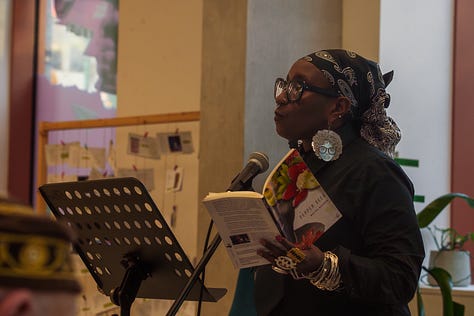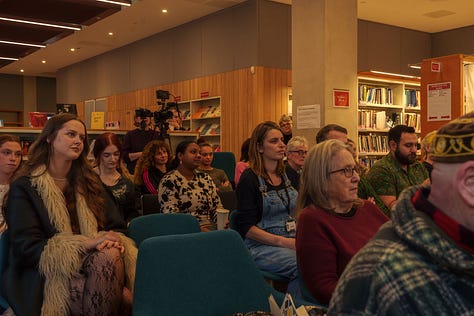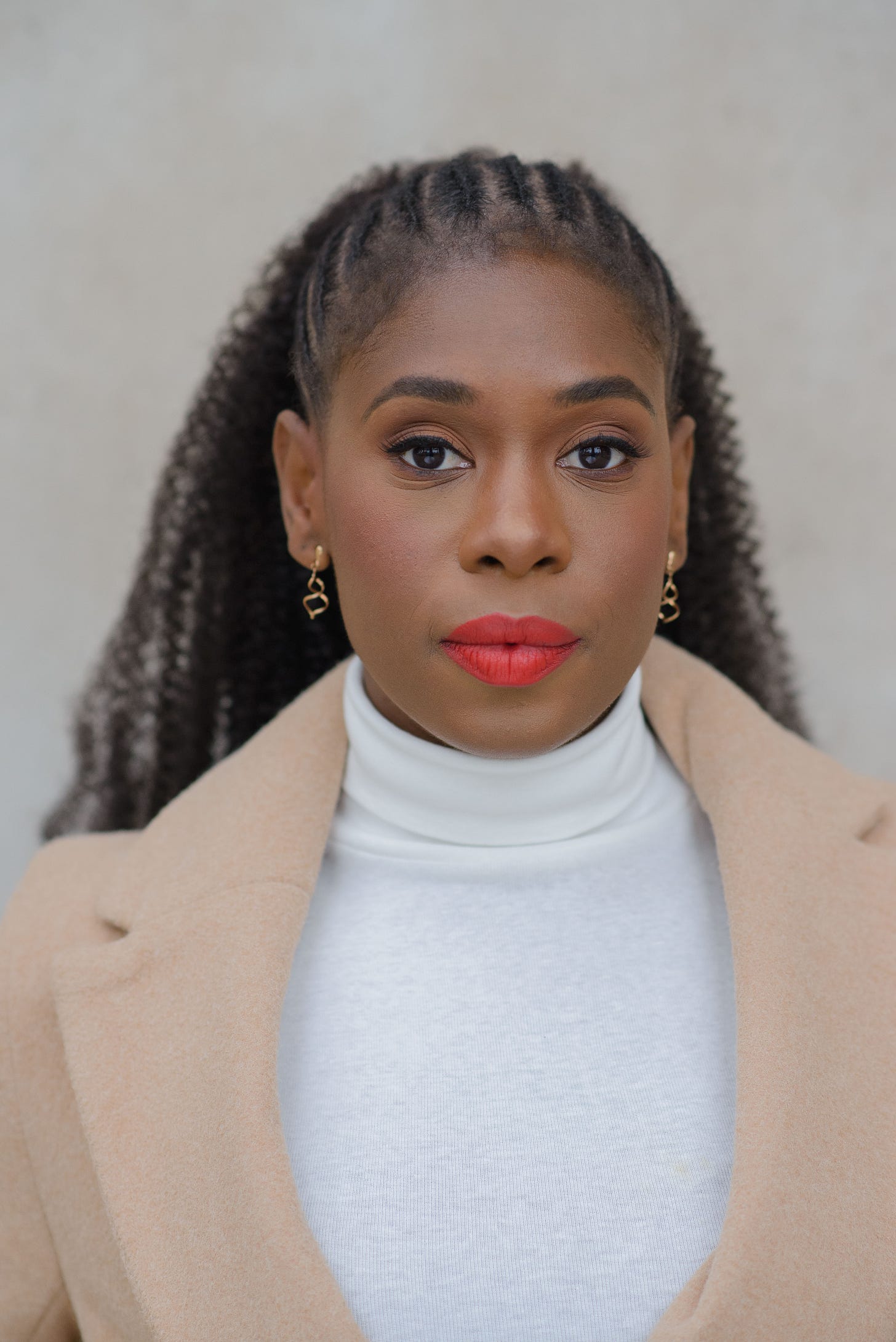A common theme that has come up throughout these first couple of days of activism is a refusal of the idea that we must suffer for art, that we must suffer in life. On Day 1, Laura Bates talked about it in the Q & A, that as writers we don’t have to reproduce our trauma for consumption.
I’ve never felt an external need to do this, more a kind of fire in my belly to talk about domestic violence and to use poetry perhaps to make people think differently about it, but more importantly, to make them feel differently. To make myself feel differently about it.
A more pressing concern for me has been to ensure that in the portrayal of traumatic events, I am not retraumatising myself, or others. That the event of the poem transforms the experience into art. That it no longer exists as merely pain, but is instead held by language, framed by language, broken apart by language or shaped by it or fragmented by it or illuminated by it or made exactly the size that it is by the white space and the language.
On Day 2, Clare Shaw also talked about the importance of realising that we don’t need to reproduce trauma or pain, and that poetry is for them a tool of connection and hope. There is a wonderful interview with Clare over at aAh! magazine, which you can find here. When I read this interview, even though I know Clare very well, and have to put up with them randomly turning up at my house, peering through the window and making possessed little snowman on my windowsill, it made me cry. I can’t imagine the power of reading these words as an 18, 19, 20 year old at university for the first time, and navigating the complexities of gender and bodies and love and desire.
In the interview, Clare says
I think what poetry can invite us to do, whether it’s through words or through form or through performance, is to connect with and to feel the realities of violence, the legacies of violence, but also to feel the realities of our own agency and power. It’s about asking people to connect with violence, and this is a difficult ask, but it’s also about connecting with hope and connecting with the drive or recovery, or connecting with resilience or connecting with the power that we find alongside each other.
This connection with hope, with recovery and resilience is so important and we need to keep it not until the final day where in a token gesture, we try and finish on a positive note, but running throughout the 16 Days, a thread of light that weaves through everything.
For Day 4, I would like to share one of Clare’s poems, written for the International Trans Day of Remembrance which takes place on the 20th November each year. 350 transpeople have been murdered this year, and of course this is gender-based violence, enacted on those people who are seen not to be ‘doing gender’ in the ‘right’ way, who have so much to teach us about the boundaries and constrictions and freedoms of bodies. I think this poem is wonderful in the way it waves sadness and pain with beauty and hope. Below the poem, you will find some photos from Clare and Malika’s reading on Day 2.
ON BEING TRANS CLARE SHAW as if a tree used to be stone as if stone felt tree inside it it took such a long time to grow and though it did not have words the stone was always a tree and it cracked open - should stone be allowed to crack open? as if all this knowledge was seed and it scared us as if it was light and we had been in the dark a long time as if we dreamed ourselves into being and this was forbidden and some were flowers and they plucked us and some of us were thistledown and blew away as if the seed was a dream and broke open the stone because of the tiny spaces and the incredible strength of the seed as if something knew itself more than whatever made it as if something dreamed itself into being even though it was not allowed






These photos are from Day 2 and taken by talented student photographer Jack Oliver.
Day 4 of 16 days of activism features Dr Frazer Heritage, and poet and PhD researcher Caroline Stancer. It starts 11-1pm at Manchester Poetry Library.
Dr Frazer Heritage will be discussing his new book Incels and Ideologies: exploring how incels use language to construct gender and race. Dr Heritage positions incels’ performances of masculinity against a backdrop of broader social sciences and linguistic literature. Dr Heritage will be joined by PhD student Caroline Stancer.
Caroline’s poetry focuses on representations of masculinities in contemporary poetry. She is particularly interested in how poetry can use multiple viewpoints to both represent and challenge current performances of masculinity which may be harmful to people of any gender.
Tomorrow the wonderful Safiya Kamaria Kinshasa will be sharing pieces from her live literature show ‘Cane Corn & Gully’, adapted from her highly acclaimed debut poetry collection. Safiya navigates the historical narratives of Barbadian women, and through their dances she learns valuable lessons on womanhood, love and ice-cream sandwiches. This literary experience will share ground-breaking research on black history and may feature historical tales some audiences may find disturbing. Please book a ticket and let us know you’re coming!





Yes, what draws me to 'confessional poetry' is how it can communicate a reclaiming of power over trauma and how the heart refuses to be silenced, rather it grows bigger and louder. There are a host of poets who inspire me in this way, including you and Clare. And yes, the sharing of it also reflects back what still remains to be healed.